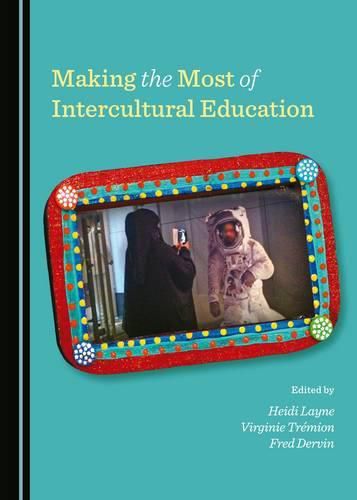Readings Newsletter
Become a Readings Member to make your shopping experience even easier.
Sign in or sign up for free!
You’re not far away from qualifying for FREE standard shipping within Australia
You’ve qualified for FREE standard shipping within Australia
The cart is loading…






Many different words are used to deal with diversity in education, such as cross-cultural, meta-cultural, polycultural, multicultural and intercultural, as well as terms like global and international. Some are trendier than others, some more political. Some of these words are used in certain parts of the world, while others are rejected. This volume concentrates on the notion of the ‘intercultural’ and makes sense of its polysemy in education. As such, in research and practice, my intercultural may not mean the same as your intercultural. My intercultural might have different values and ideologies than your intercultural. The contributors also propose considerations on how to make the most of ‘renewed’, critical and reflexive approaches to intercultural education in a breadth of contexts and countries, including Argentina, Australia, France, Iceland, Tunisia and the UK. The book will appeal to students and teachers, as well as to confirmed researchers who will gain inspiration and new insights into the increasingly contested notion of the ‘intercultural’ in education.
$9.00 standard shipping within Australia
FREE standard shipping within Australia for orders over $100.00
Express & International shipping calculated at checkout
Many different words are used to deal with diversity in education, such as cross-cultural, meta-cultural, polycultural, multicultural and intercultural, as well as terms like global and international. Some are trendier than others, some more political. Some of these words are used in certain parts of the world, while others are rejected. This volume concentrates on the notion of the ‘intercultural’ and makes sense of its polysemy in education. As such, in research and practice, my intercultural may not mean the same as your intercultural. My intercultural might have different values and ideologies than your intercultural. The contributors also propose considerations on how to make the most of ‘renewed’, critical and reflexive approaches to intercultural education in a breadth of contexts and countries, including Argentina, Australia, France, Iceland, Tunisia and the UK. The book will appeal to students and teachers, as well as to confirmed researchers who will gain inspiration and new insights into the increasingly contested notion of the ‘intercultural’ in education.